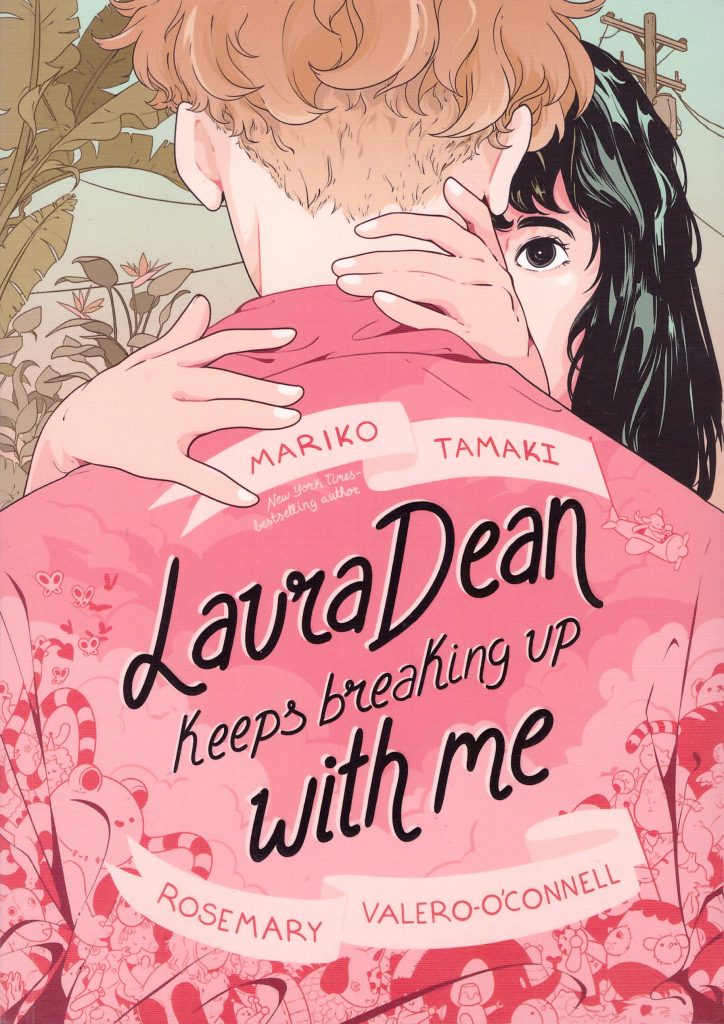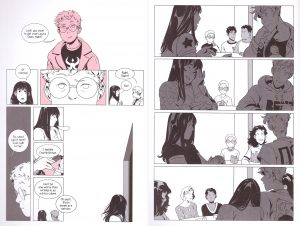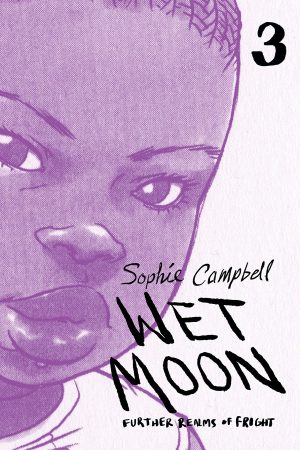Review by Frank Plowright
Freddy Riley is seventeen, named after her long dead Aunt Frederica and just finding out about the traumas of teenage love. As the title tells us, Laura Dean keeps breaking up with her, on this latest occasion to experiment with someone else during the school dance.
If there’s a better graphic novel exploration of teenage heartbreak and confusion it’s a book worth getting, as this is superb. Mariko Tamaki institutes a deliberately measured slow pace to wring every last moment of pathos from poor Freddy. Laura is beautiful, as is Freddy, and almost everyone else as illustrated via the delicate penmanship of Rosemary Valero-O’Connell, and that’s the only bad decision connected with Laura Dean. That everyone is so cute or alluring slightly detracts from their problems, as, wrongly maybe, it’s harder somehow to sympathise with people who’re beautiful. Laura is beautiful, but manipulative, which we can see, but Freddy can’t, at least not on a surface level, while she clings to her infatuation. She is, however, aware there’s a problem, and her narrative captions take the form of a long letter to an online agony aunt.
Emotional strength is key to Laura Dean Keeps Breaking Up With Me, both creators contributing so much. Tamaki’s dialogue is so natural that it passes by unnoticed, and in terms of character creation we’re lucky if we don’t know a narcissist unable to relate to the concerns of others, so our sympathies are fully engaged with Freddy to the point where we want to throttle the selfish Laura. So much of this is on the shoulders of Valero-O’Connell, since the resonance depends on her ability to convey what people are feeling without words. Freddy’s friend Doodle is especially well portrayed in this way, her participation not so much about what she says, but how she looks at people. Doodle is just one among several endearing supporting characters, few of them anything other than loveable. Her purpose is to show an unconscious form of selfishness, Freddy so wrapped up in her woes she’s sometimes unaware of what others feel, ignoring that friendship also requires dependability. Between them Tamaki and Valero-O’Connell totally nail the teenage vulnerability, where everyone feels they have to project a smiley face no matter what’s inside.
A surprise awaits in the final act, someone never seen making perfect sense of Freddy’s world and guiding her to the position enabling her to move her stalled life onward. There’s one hell of a lot of talent and wisdom here, and because it never patronises or talks down it’s a graphic novel that could help a lot of people, straight or otherwise, formulate their own solutions. Read it.





